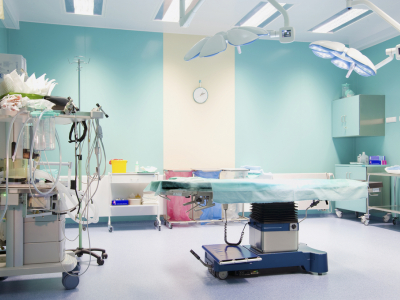What is Vascular Surgery?

Most people's initial impression of vascular surgery is that it is a procedure used to make body parts like the hands and legs appear less veiny and more appealing. Although it is one advantage of vascular surgery, there is more to it than most people realise.
The channels (veins and arteries) that convey blood throughout the body are kept healthy through vascular surgery or treatment. The arteries are the conduits through which blood leaves the heart, whereas the veins are the conduits through which blood enters the heart.
The arteries are larger than the veins, but in order for them to survive the high pressure of the blood being transported, they must retain a certain thickness. They represent a serious risk to the body when they lose their thickness and suppleness. Because there wouldn't be a regular or steady flow of blood throughout the body, vascular surgeons help reduce these threats to the body.
Vascular surgeons address these conditions in various ways in order to promote the regular circulation of blood throughout the body. You should read this article to learn more about the subject. So, please be sure you read all the way through for further details.
Vascular Diseases and the Various Types
As was already established, several illnesses have an impact on the organs (channels) in charge of moving blood throughout the body. Vascular diseases are the term used to characterise these diverse disorders. Vascular disorders can be classified as follows:
-
Abdominal aortic aneurysm: Aneurysm is a condition where the section of the veins or arteries becomes weak, causing it to pop from the pressure of blood transported.
-
Atherosclerosis
-
Carotid artery disease and carotid artery stenosis
-
Chronic venous insufficiency
-
Intermittent claudication
-
Deep vein thrombosis
-
Peripheral vascular disease
-
Pulmonary embolism: This disease is particular to the veins and arteries in the lungs
-
Reynaud s phenomenon
-
Renal vascular disease: particular to the kidney
-
Thoracic aortic aneurysm
Causes of Vascular Diseases
In addition to the cosmetic advantages we are accustomed to, we look at the numerous causes of cosmetic disorders to better appreciate how crucial vascular treatment is to our health. They consist of:
-
Genetics
-
Infection
-
Lack of exercise
-
Embolus/Thrombus: This is when complex substances form in the blood-carried channels.
-
Medicine
-
Lack of exercise
-
Heart diseases
-
Nutrition
-
Inflammation
Caring for Your Veins and Arteries
You will be given advice by specialists at the surgical clinic to take good care of your veins and arteries. Some techniques for maintaining the health of your arteries and veins include:
-
Eating the right foods: Ask a vascular surgeon for recommendations on what to eat that contains nutrients that are important for the veins and arteries.
-
Drink plenty of water: Since water makes up roughly 93% of the blood, it is crucial to routinely consume water to ward off disease.
-
Regular exercise: It's important to exercise regularly since it keeps blood flowing properly in the body.
Conclusion
Vascular surgeons use a variety of procedures to administer vascular therapies, many of which have numerous advantages. The fundamental goal of vascular therapies provided by surgical clinics was underlined in this article, among other things.










